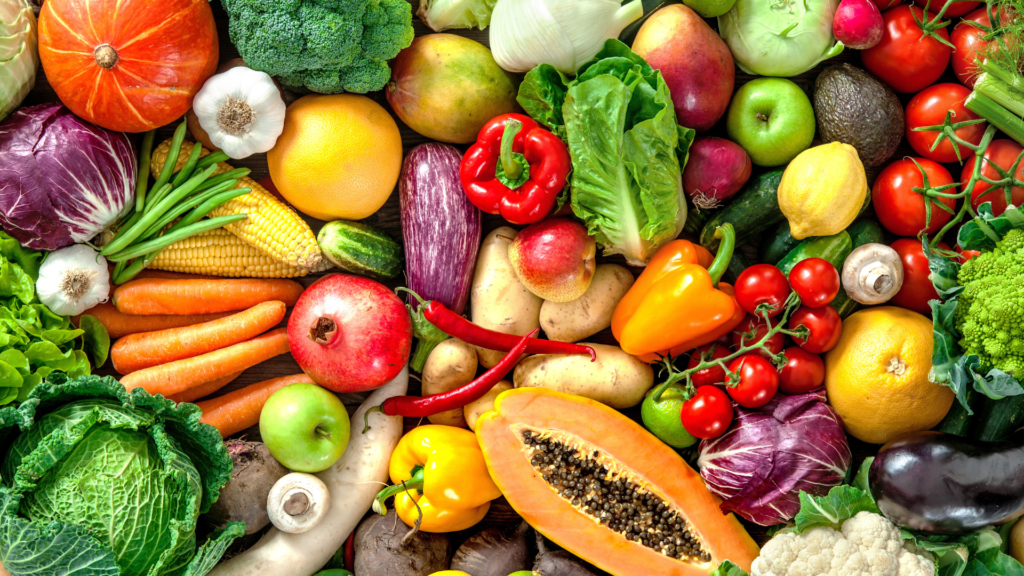In the quest for optimal health, we often prioritise aspects like exercise, sleep, and mental well-being. However, one vital component that shouldn’t be overlooked is the impact of our diet on our eyes. Just as a balanced diet is essential for overall well-being, it plays a crucial role in maintaining good eye health. In this article, we will explore the fascinating connection between diet and eye health, and discover which nutrients are essential for promoting and preserving healthy vision.
The Power of Antioxidants
Antioxidants are superheroes when it comes to eye health. They help combat oxidative stress caused by harmful molecules called free radicals, which can damage the cells in our eyes over time. Including antioxidant-rich foods in our diet can help protect our eyes from age-related macular degeneration (AMD), cataracts, and other eye conditions. Some notable antioxidants include:
- Vitamin C: Found abundantly in citrus fruits, berries, and leafy greens, vitamin C aids in reducing the risk of cataracts and slowing the progression of AMD.
- Vitamin E: Almonds, spinach, and sunflower seeds are excellent sources of vitamin E. This nutrient protects our eyes from damage caused by free radicals and may reduce the risk of cataracts and AMD.
- Beta-Carotene: Our bodies convert beta-carotene into vitamin A, which is crucial for maintaining good vision. Carrots, sweet potatoes, and dark leafy greens are rich in beta-carotene and can promote healthy eyes.

Omega-3 Fatty Acids
Omega-3 fatty acids are essential fats that play a significant role in eye health. The two main types of omega-3s found in fish, flaxseeds, chia seeds, and walnuts are docosahexaenoic acid (DHA) and eicosapentaenoic acid (EPA). DHA, specifically, is a major structural component of the retina and is vital for visual development and retinal function. Omega-3s help reduce the risk of dry eyes, macular degeneration, and glaucoma.
Lutein and Zeaxanthin
Lutein and zeaxanthin are two essential carotenoids found in the macula, the central part of the retina responsible for clear and sharp vision. These nutrients act as natural sunscreens, filtering harmful high-energy blue light and protecting the delicate cells in the macula from damage. Green leafy vegetables like spinach and kale, egg yolks, and corn are excellent sources of lutein and zeaxanthin.
Maintaining Stable Blood Sugar Levels
Uncontrolled blood sugar levels can lead to a condition known as diabetic retinopathy, which damages the blood vessels in the retina. To maintain stable blood sugar levels, it is essential to consume a well-balanced diet that includes whole grains, lean proteins, healthy fats, and plenty of fruits and vegetables. Avoiding sugary drinks and processed foods is also crucial in preventing blood sugar spikes that can harm your vision.
Hydration and Eye Health
Staying properly hydrated is essential for overall health, including eye health. Dehydration can cause dry eyes and contribute to eye strain. Ensure you drink an adequate amount of water throughout the day, especially in dry environments or during prolonged screen time.
Diets for Specific Eye Conditions
Tailoring your diet to address specific eye conditions can provide additional support. Here are some diet recommendations for common eye conditions:
Diet for Macular Degeneration
For macular degeneration, incorporate foods rich in omega-3 fatty acids, lutein, zeaxanthin, and antioxidants. Dark leafy greens, fish, and colourful fruits and vegetables should be the foundation of your diet.
Diet for Glaucoma
A diet rich in antioxidants, specifically vitamins C and E, can support eye health in cases of glaucoma. Include citrus fruits, berries, almonds, and sunflower seeds in your daily meals.
Diet for Dry Eyes
Stay hydrated and include foods rich in omega-3 fatty acids, such as fatty fish and flaxseeds. Consuming foods high in vitamin A and vitamin C can also be beneficial.
Diet for Cataracts
To reduce the risk of cataracts, prioritise a diet rich in antioxidants and vitamin C. Colorful fruits and vegetables, especially citrus fruits, can provide the necessary nutrients.
While genetics and age play a role in our eye health, our dietary choices can significantly influence the long-term well-being of our eyes. By incorporating various antioxidant-rich foods, omega-3 fatty acids, lutein and zeaxanthin, and maintaining stable blood sugar levels, we can nourish our eyes and potentially reduce the risk of developing age-related eye conditions. Remember, a balanced diet is not only beneficial for our overall health but also a key ingredient in maintaining healthy vision throughout our lives. So let’s make wise dietary choices and see the world through a clear and vibrant lens!

